AudioCulture
The noisy library of New Zealand music
Te pātaka korihi o ngā puoro o Aotearoa
Wendyhouse
Established in 1992, they’ve been experimenting with guitars and “C-A-S-I-O” Casiotones, and popping up weird with varying degrees of regularity ever since.
Born in an art installation in 1992, the first sighting of the band was through spy holes in the walls of a windowless Wendy house, installed in Auckland’s Artspace gallery for the Soundwatch festival. Inside, Bryce “Mr Pudding” Galloway, EE monk (Daniel Powell) and an itinerant percussionist (Graham Agnew) performed songs from the future – 2032, specifically. In the audience, influential broadcaster, composer, writer, editor, critic and teacher William Dart was instantly converted to the status of stalwart fan.
Galloway is easily recognisable as the character depicted in the comic ‘Fuck’, from Wendyhouse’s Bananawine zine-come-album packaging, so aesthetically similar are they.
Phoning the Dial-a-Prayer service was another early audio experience
Wendyhouse aside, Galloway is an artist and academic best known for his long-running fanzine Incredibly Hot Sex With Hideous People. He is a senior lecturer at Whiti o Rehua School of Art, at Massey University, teaching Fine Arts courses, including the Art Studio cores, zine-making, and drawing electives. His research champions DIY self-publishing and lowbrow materiality (fanzines, music, video, etc.). He holds committee memberships to Hamilton Zinefest and Wellington Zinefest.
“If anyone asked, he said he was an artist…” from ‘The Best Worst Artist Ever’, Puddlekopf (2024).
Galloway grew up in a family he describes as not particularly musical. The presence of a transistor radio in a brown leather case – installed in the kitchen, and tuned to Hamilton station 1ZH – brought the sounds of The Beatles, and David Bowie’s ‘Space Oddity’ into his life. Phoning the Dial-a-Prayer service was another early audio experience.
His own penchant for performance surfaced at an intermediate school camp talent quest, for which he roped in some friends to perform a musical skit he wrote.
“We were all dressed as cavemen, and we were singing about some cavewoman that we fancied. That went down really well, and we had to perform it in assembly in front of the whole school. It went okay. It was just too short – over in a minute, you know? And people were, like, [‘More! More!’] and we were like: ‘That’s all we’ve got.’ But it was very 12-bar. I’m not not a musician, but I channelled obviously popular radio stuff that I’d heard.”
He joined a band at the age of 18, in 1984, “because everyone wanted to”. Their initial “failed” practice – where three hours were spent just trying to tune their instruments and play the same thing – fostered a spontaneous new approach.
“At the next practice, someone picked up a bass and just started playing two notes, and I picked up a kind of custom exhaust off a motorcycle with several pipes coming out of it, and started whacking those with a drumstick. We were, like, ‘this is actually way better’. So, we just dropped the idea of being able to tune instruments and play full chords, and just played noise.
“We collected hubcaps and sheet metal, and would write and perform songs that were just an idea that we hadn’t actually rehearsed. Like, you read this poem, and you play the distortion violin, and and I’ll clatter this piece of sheet metal. Industrial music in the 80s was kind of a big thing, so that idea of field recordings and environmental sound and stuff was quite liberating. It gave you license to go, ‘Oh, maybe we can play two notes on the bass and bang a custom exhaust. Maybe that’s legit.’”
He’d observed a similar approach work for highly unconventional German avant-garde band Einstürzende Neubauten.
“In my first flat,” he remembers, “I imported a copy of Kollaps, and told people, ‘I’ve got this album, and one track is just the sound of a jackhammer.’ They came to my flat to hear this record, like, ‘That can’t be true,’ then listening to it and going, ‘That’s awesome.’”
He recalls the awesomeness that was Sounds Unlimited in Remuera Road in the 1980s, and the weird and wonderful albums they would ship in for customers.
“I’d hitchhike to Auckland and see some band, and pick up records that I’d ordered. All that pilgrimage stuff”
“I’d ring them up – toll call – hitchhike to Auckland and see some band, and pick up my records that I’d ordered. All of that pilgrimage stuff.”
It was also in Auckland that Galloway found his ideal creative compadre, at Elam Art School, Daniel Powell, “this weird guy who used to sit up on the mezzanine. He seemed like a real acid casualty, and used to play acoustic guitar, and I’m not musical in that way. I made him a tape of the kind of stuff that I would want to inform a musical project.”
That tape included a sound palette of Daniel Johnston, Young Marble Giants, and The Residents; plus some folk and country, and the “novelty country” of Roger Miller. Daniel was amenable to the proposal, and the tape supplied a mood board of influences the pair would mash up into Wendyhouse.
Galloway says: “I always thought it was weird because people go, ‘Oh, you’re so original.’ And I’d be like, ‘Well, it’s actually just collecting a melange of stuff.’ We very deliberately started with all of the influences writ large, but maybe not put together in that combination, or not in a New Zealand context.”
His strange band’s structurally confined debut outing presented their vision of the future – 2032, to be specific. They considered what jobs people might have; who was in control, geopolitically; what recreational drugs looked like. They decided their dwellings would be tiny houses on wheels. This necessitated the musically inclined having toy instruments, or instruments of diminishing scale.
“There was a yearning for some kind of, like old, sort of familial, family folk jam stuff,” says Galloway.
Although the concept was futuristic, adornments on the shelves in the initial Wendy house were retro. “We thought our characters were hedging their bets, because of the ecological state. So, there was a whole lot of different, pan-religious stuff – Christ and Buddha.”
With 2032 just seven years away now, Bryce reflects on how close to the mark Wendyhouse were in 1992. “Well, it was kind of true,” he says, telling a story that blurs then and now. “It was a time of ecological devastation, where people lived in tiny houses, and prayed to an array of deities, because things were so scary out there. I guess it was a surveillance idea too, with all of the security lenses that we had studding the walls of that house. We definitely got some things wrong, geopolitically.”
The initial union of performers Galloway and Powell proved right, though, and has endured – often via the postal service – to this day.
“We enjoyed the Soundwatch experience so much that we started performing its songs outside of the Wendy house, in galleries, pubs, and clubs, with Martin Scott on toy Casiotone keyboard, Daniel on guitar or ukulele, and me on vocals,” Galloway recalls.
at gigs, audiences of punks stopped pogoing to sit cross-legged on the floor
National tours followed, in which audiences of punks stopped pogoing to sit cross-legged on the floor, like the long-lost preschoolers hidden inside their bondage pants and torn fishnets. The band’s counterculture pearls of political wisdom – on songs like ‘Suit Suit, Kill Kill’ and ‘Fuck the Mall’ – were released on frequent cassette offerings (on their own Wiggley Tapes label), leading to the first compilation album, Hot Action Plastic in 1994.
The track ‘Uncle Edwin’ imagined a future in which Taco Bell had won the franchise wars. In what Galloway considers a “crazy coincidence”, the blockbuster Sylvester Stallone and Wesley Snipes film Demolition Man (which was released soon after Hot Action Plastic, and was also set in 2032) also envisaged a Taco Bell-dominant future.
In 1995 Tania Hall of the Waikato Times described Wendyhouse as “Hamilton-based band-cum-artists who inhabit the mysterious musical underworld most people who listen to who listen to Top 10 radio stations are never likely to hear about, let alone hear.
“They could be any mum and dad’s slightly eccentric kids. The kind of pallid, under-nourished-looking guys who were more likely to be watching splatter films and hanging out in the art room at high school than blowing snot out of their nostrils on a frost rugby field with the First XV.”
Of all the genres or descriptions that Wendyhouse have had thrust at them, perhaps “the most confrontational,” wrote Philip Matthews in the Listener in 1999, was “the Hamilton band from hell.” A 1993 compilation of alternative Hamilton bands called Dicordia Concors – on which Wendyhouse was included because Galloway once called it his hometown – attracted a lot of scornful critics amused at the Hamilton connection. The city is “the butt of national jokes,” Galloway said.
“There were negative things about Wendyhouse, negative things about a band called Hitler’s Cock that I was in in my late teens. Hamilton’s so stigmatised – I thought, here’s an opportunity to start celebrating that geek thing, to challenge people in that way. Saying, ‘”We’re from Hamilton. Can you handle it?”
In Real Groove, Chris Knox reviewed Dead Men’s Shoes (1995) in a cartoon strip. He described it as a cassette-only collection “of wry, pointless concoctions of great intellectual and spiritual significance. Dead Men’s Shoes (Wiggly Tapes) contains proof that these three lads are on the brink of anonymity once again … and they deserve better! There’s more invention in these fragile fragments than in the entire career of U2!”
From 1995, Galloway and Powell began finding themselves separated by continents, when the latter began a drawn-out pattern of moving to and from Europe. Old school ingenuity was employed to produce the cassette mini album The Love Quadrangle (Wiggley Tapes, 1996). The project was made in international fragments, using toy instruments, with members snail-mailing four-track cassettes to each other. It would not be their only experience of pasting together independent efforts.
Their album Pan, in 2004, was essentially two solo albums with identical track listings: one by Powell running in the left channel, and one by Galloway in the right. It was up to the listener to decide whether to balance them for individual, right or left channel listening, or mix them to the desired balance. Some customers returned their discs to retailers, complaining they were faulty. Simon Sweetman, reviewing the album for Rip It Up, called it “challenging fun”.
This brings to mind questions like: Is it art? Is it music? Is it poetry? Does it matter? Galloway considers Wendyhouse all those things.
“The gig we just played, even, having not done a gig for ages – just telling the audio engineer, ‘You have to be able to hear the lyrics’ – sort of reminded me how much poetry or focus there is on the lyrical content and the stories.”
At their debut gig, the audience’s affection turned ugly after a few beers
At one time self-identifying as a Hamilton band – “about the uncoolest thing you could do”, according to Hamilton-born Galloway – on March 8, 2025, Wendyhouse played their first gig in Kirikiriroa in 20 years. They warmed up at a private party in Galatea, where the audience’s affection for them turned ugly after a few beers, when the band’s political colours clashed with those of the audience.
“It’s hard to know how to pitch it, because people seem to be tuned out,” Galloway says, regarding his preoccupying environmental concerns. “When we played in Galatea, it was funny, because the music is quite political, and the farmers really loved it. So, we hung out with them drinking beer, and then they were sort of looking at us going, ‘Who did you vote for?,’ because our politics were starting to show. When we told them we voted Green and Green, they wanted to fucking kill us.”
Further explanation is required regarding how they might end up hired for such an audience in the first place.
“Well, it’s a friend, so he knew what he was getting. But, he kind of likes a challenge, because Galatea is dairy farming land, so, he likes to be a square peg in that environment. He was kind of relishing, putting weird shit in front of the locals. He hired the Schizophonics to play. He hired a stage from Rhythm and Vines, and erected it in his backyard. He went all out.”
Wendyhouse followed this gig with a set at the Kirikiriroa Festival of Weird, playing alongside Empress, DJ Handbrake, and Glass Shards. This flurry on the live front collided with them gaining a huge shove into the Radio New Zealand listener consciousness, across a couple of programmes counting down to the retirement of their longtime champion William Dart (fittingly) at Christmas time in 2024.
Well known for his love of compiling unconventional Christmas song playlists, Dart commissioned Wendyhouse to write a Christmas song for RNZ’s New Horizons, in 1998. This, inadvertently, prompted the band to make a whole album of anti-festive singles over the next seven years. Tracks included: ‘Does Anyone Know It’s Ramadan?’, ‘Jesus is Dead Again’, and ‘Suicide’s Christmas’.
“Cards in the mail / They may be red and gold / And full of shit / But at least I know that they are mine …” ‘Christmas Email’, from The Wendyhouse Christmas Album (2005).
William Dart commissioned Wendyhouse to write a Christmas song for RNZ’s ‘New Horizons’
“I must admit that I was a pushover for the band Wendyhouse from the moment I first saw them, 32 years ago,” Dart remembered when introducing them, harking back to the Artspace gig.
In November 2024, one of Dart’s New Horizons playlists featured no less than six Wendyhouse tracks out of a total of the programme’s total 11.
For someone who has spent a lifetime documenting his wildest imaginings, and not being backward about walking the talk politically, Galloway – a father of two, one who is also an art student – does not prescribe the same medicine to his students.
“Once, I would have said: ‘Just do what you want to do, and follow your passions.’ But that’s tempered a little bit now by the pressures I know young people are facing.”
He knows a bit about the pressures older people are facing too. With Powell back in the country, and the decision to start performing again – over 30 years since they began – they’re not the young Elam Arts students that you could once stuff a few of into a box.
“It is weird, because we’re so much older. We wore matching pyjamas at the Festival of Weird performance,” Galloway says, perhaps forgetting they weren’t wearing the pyjama pants. “I wore an adult diaper. I’m not taking the piss out of old people, because I am a little bit incontinent myself; and I am nearly 59. It was more taking the piss out of how most bands are still young and sexy and photogenic, and we’re not. Let’s lean into that … wear our hospital pajamas and our diapers, and the pressure hose as well.”
Four decades after blowing his mates’ minds with post-industrial noise from West Berlin, Galloway’s tastes for the limits of legitimacy still steer towards the niche.
“I really like what my friend vegetable.machine.animal is doing. He and his partner Chrissie used to play as mr sterile Assembly, but now he is collaborating with plants. He will have little electrodes attached to fungi, and running through a synthesiser. He will spray the fungi to stimulate a little bit of activity, and then drum along with the weird blips and bleeps that the fungi make.”
Its creator describes it as “interspecies rock’n’roll”. Such nuance suits Galloway’s penchant for less stadium-sized, more intimately tuned musical experiences, fitting for a performer who began his musical career within the implied constraints of the band name Wendyhouse.
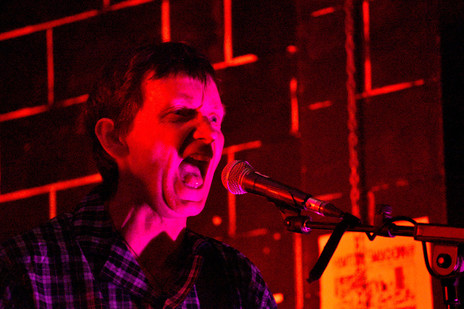
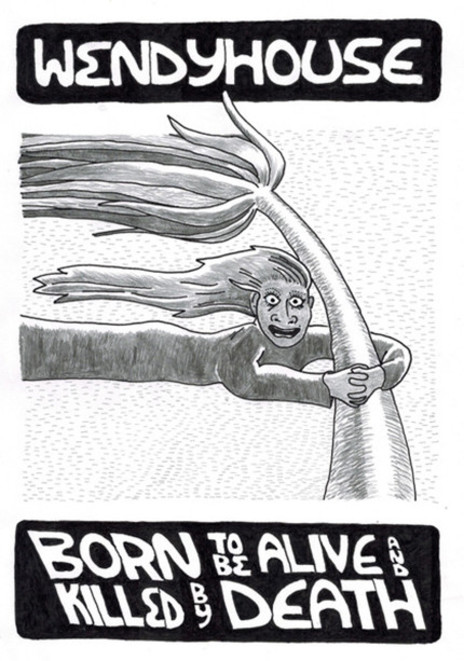
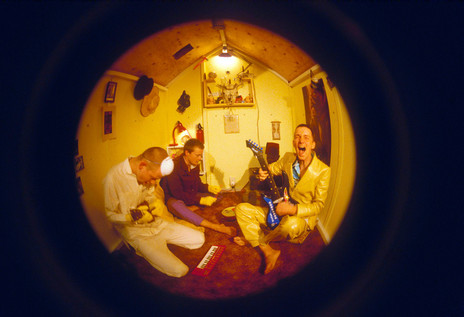
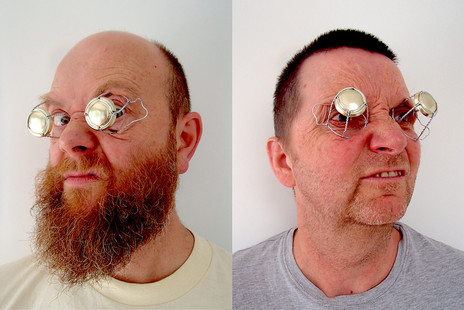
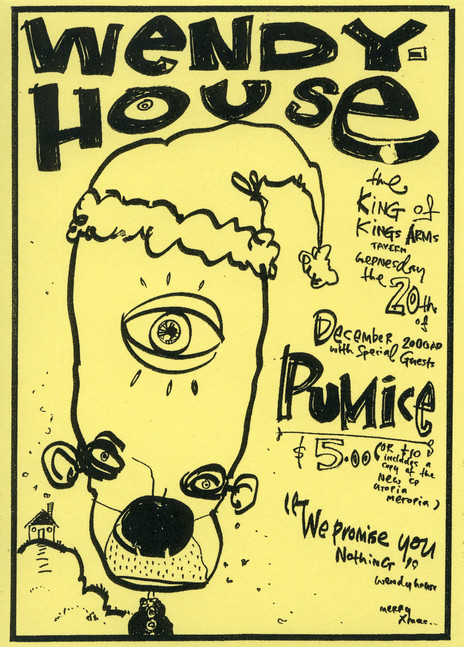
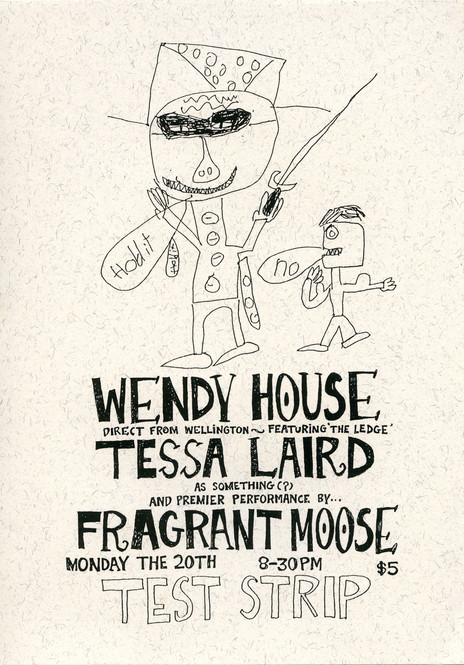
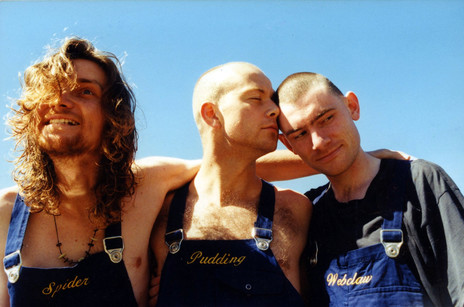
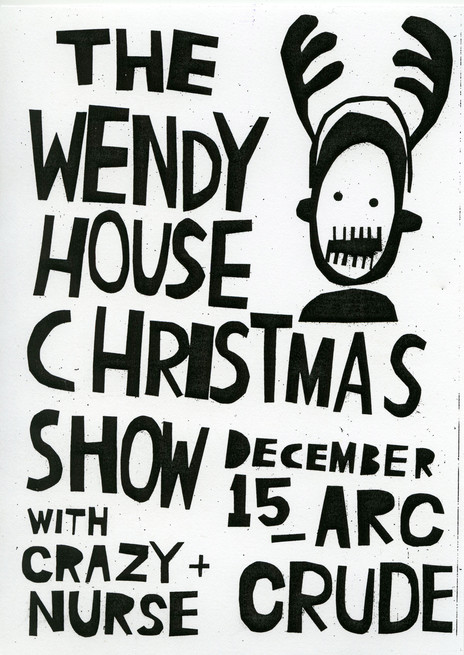
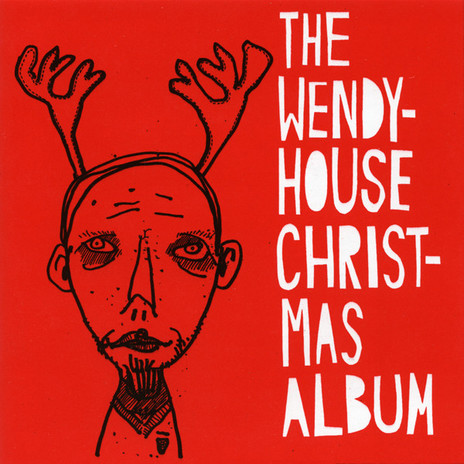
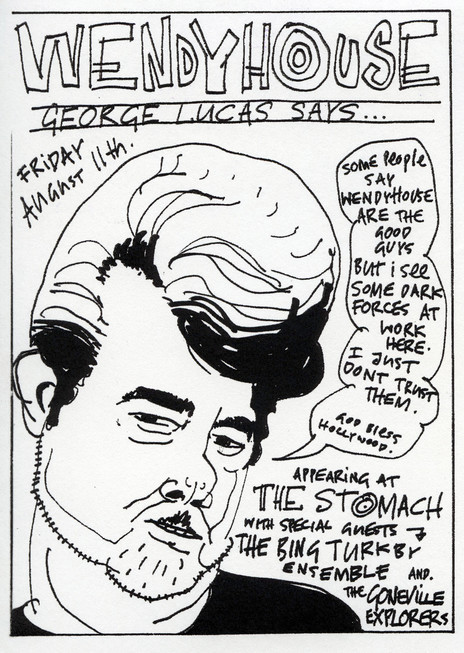
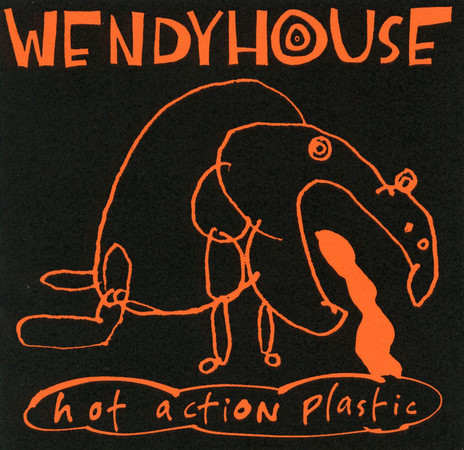
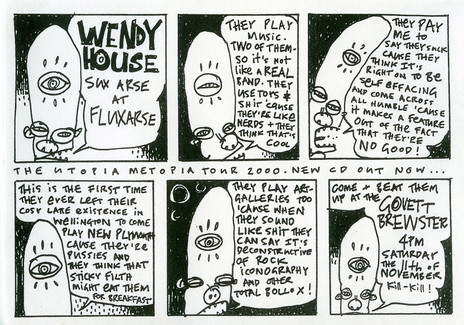
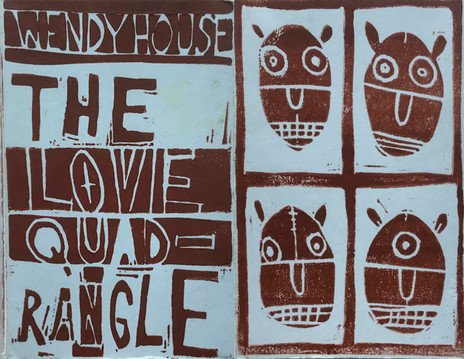
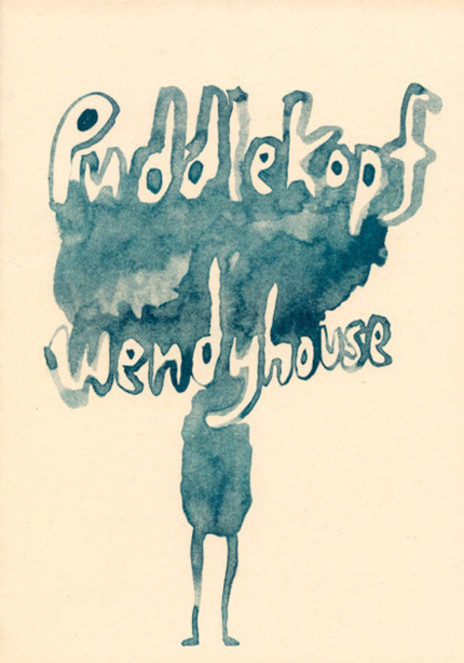
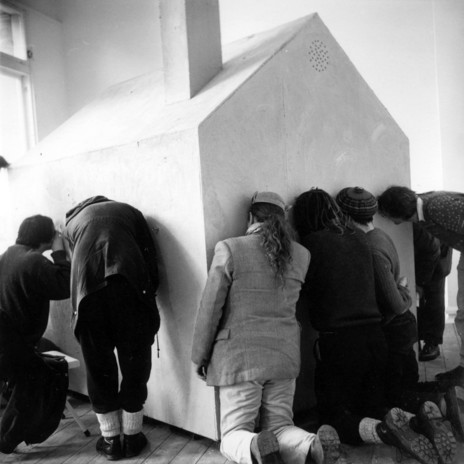
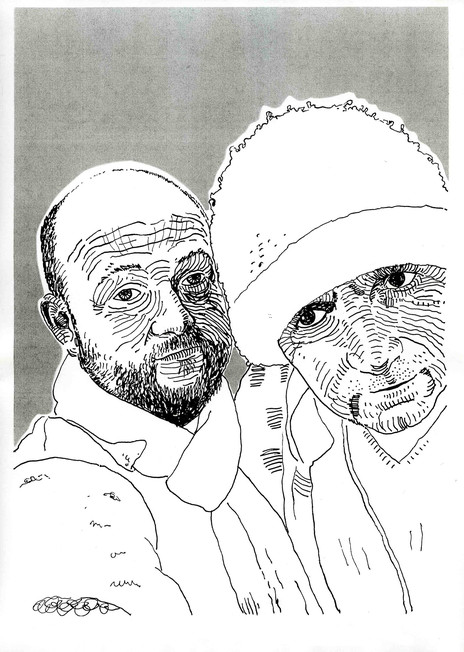
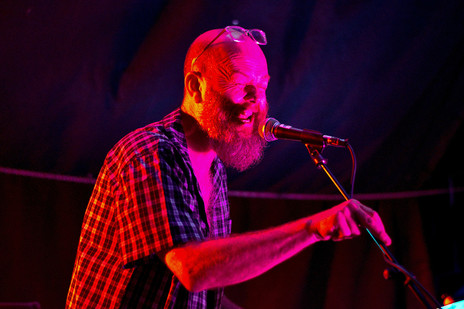
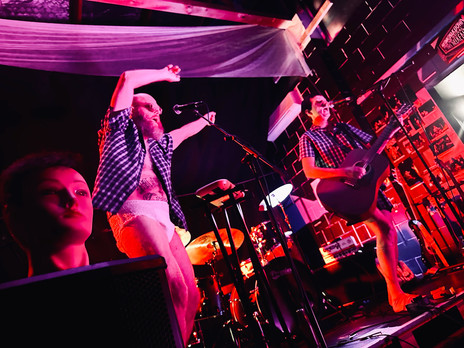
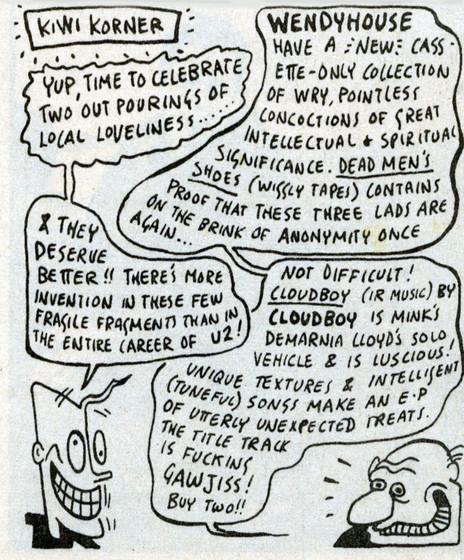
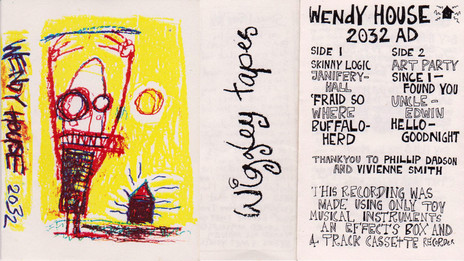
Bryce Galloway - keyboards, vocals
Daniel Powell - guitar, vocals
Graham Agnew - percussion
Martin Scott - Casiotone
Wiggley Tapes
Visit our sister site
NZ On ScreenMade with funding from
NZ On Air
